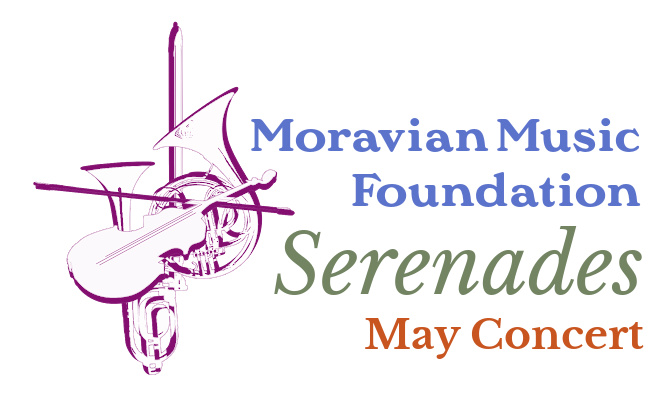

In the Beginning…
The Moramus Chorale
with its new Director, Amanda Moody Schumpert!
The Vivaldi Project (string trio)
Tannenberg Organ (Salem, 1800)
Friday, May 16, 2025
7:00pm
Old Salem Visitor Center
900 Old Salem Rd., Winston-Salem, NC
Let All Things Now Living (MBW 448)
Let all things now living a song of thanksgiving to God the Creator triumphantly raise,
who fashioned and made us, protected and stayed us,
who guides us and leads to the end of our days.
His banners are o’er us, his light goes before us, a pillar of fire shining forth in the night,
till shadows have vanished and darkness is banished, as forward we travel from light into light.
His law he enforces; the stars in their courses and sun in its orbit obediently shine;
the hills and the mountains, the rivers and fountains, the deeps of the ocean proclaim him divine.
We too should be voicing our love and rejoicing; with glad adoration a song let us raise,
till all things now living unite in thanksgiving: to God in the highest, hosanna and praise!
The Heavens Are Telling
The heavens are telling the Lord’s endless glory, through all the earth his praise is found.
The seas re-echo the marvelous story:
O man, repeat that glorious sound!
The starry hosts he doth order and number,
He fills the morning’s golden springs,
He wakes the sun from his night-curtained slumber;
O man, adore the King of kings!
O man, adore the King of kings!
The Moramus Chorale
The Creation, excerpts … Franz Joseph Haydn (1732–1809)
Introduction: In the Beginning…
Barrett Bailey, bass
The Heavens Are Telling
Carly Orr, soprano
Quinn Albinus, tenor
Barrett Bailey, bass
And God Said…On Mighty Pens
Carly Orr, soprano
The Vivaldi Project
Elizabeth Field and Allison Nyquist, violins
Stephanie Vial, cello
Divertimento in G major Franz Joseph Haydn
for two violins and basso
Allegro
Menuet – Trio
Presto
Let All Things Now Living (MBW 448)
Prelude III Christian I. Latrobe (1758-1836)
Mary Lou Kapp Peeples, organ
The Moramus Chorale
Shout, Ye Heavens John Antes (1740–1811)
This is the Day that the Lord Created Johann C. Geisler (1729-1815)
This Is a Day Christian Gregor (1723-1801)
The Vivaldi Project
Trio no. 2 in D minor, op. 3 John Antes
for two violins and violoncello
Allegro
Andante un poco Adagio
Presto
The Heavens Are Telling Ludwig van Beethoven (1770-1827)
Moramus Chorale
Soprano: Martha Abernethy, Colleen Atwood, Ginger Haynes,
Mary Elen Kollman, Ann Lawrence, Martha Vance Low, Carly Orr,
Debby Giesler Pyatt, Marilyn Rowe, Blanche Swaim
Alto: Darlene Chipman, Mary Comer, Linda Frey, Moyra Gunter,
Dottie Jones, Betty Körner-Atkins, Cathryn Morse, Raine Myers,
Norma Nifong, Betsy Oerter, Erin Ogburn, Carol Southerland,
Helen Steffan, Mary Lou Stott, Barbara Strauss
Tenor: Quinn Albinus, Ray Gatland
Bass: Barrett Bailey, Don Frey, Hal Garrison, Paul Harder,
Everett Swaim, Wayne Yancey
Franz Joseph Haydn was no stranger to the Moravians. The collections of the Moravian Music Foundation contain numerous prints and manuscripts of his instrumental and vocal works. Tonight, we will celebrate one of these works, The Creation, along with the music of Moravians inspired by this giant of eighteenth-century music. The connection between the Moravians and The Creation is long and deep. An incomplete performance of the work by the Moravians in Bethlehem in 1811 marked one of the earliest performances of the piece in the United States. In 1822, the first complete performance of the work in a single night was held in Philadelphia (an earlier performance in 1817 in Boston had broken the work into smaller portions held over three nights). For this Philadelphia performance, the Musical Fund Society of Philadelphia borrowed Peter’s parts from the Bethlehem performance as well as Moravian trombonists. The first performance of the oratorio in Salem took place on July 4, 1829.
Franz Joseph Haydn (1732-1809), the prolific Austrian composer, has earned the monikers: the “father of the symphony” and the “father of the string quartet.” Despite not inventing either genre, his works did emerge as standard bearers by which other composers were frequently compared. In addition to the secular works, the Moravians were also quite fond of the sacred music he composed while serving the Esterhazy family, who employed him for over thirty years. Haydn’s many admirers included Mozart (who dedicated a series of string quartets to him) and Beethoven (who was briefly his student) as well as the King of England and Napoleon (who, after Vienna surrendered to him, placed a guard of honor at Haydn’s residence). The contrasts among the movements of his works and the variety of moods, variations, and inventions, which have come to signify classical music are Haydn’s hallmarks.
Christian I. LaTrobe (1758-1836) was born in Fulneck, England. He was the son of an English Moravian minister, Benjamin H. LaTrobe, Sr., and an American mother, Margaret Antes LaTrobe, the sister of John Antes. LaTrobe was educated in Moravian schools in Germany, where he received advice on how to play an organ in church from Bishop August Spangenberg. He returned to London and served many years as administrator of Moravian mission work. He was acquainted with Haydn and other leading musicians of the day, and was the only Moravian composer to receive wide recognition outside the church during his lifetime. He died at Fairfield (near Manchester), England, on May 6, 1836.
John Antes (1740-1811) was born in Pennsylvania, but spent several years in Moravian settlements in Germany, served the church as a missionary in Egypt, and, finally as a business manager in Fulneck, England. He crafted one of the earliest violins made in America and his “Three Trios,” though written abroad, are the earliest chamber music composed by an American. Their style is in the manner of Haydn, who wrote 21 works with this combination of three instruments. One lingering mystery is whether the two met. There might have been a connection through Johann Peter Salomon (1745–1815), the concert promoter who brought Haydn to London, and who Antes described as a friend, or C. I. Latrobe, who was Antes’s nephew and an acquaintance of Haydn. Antes retired to Bristol, England, in 1808, and died there on December 17, 1811.
Johann Christian Geisler (1729-1815) was born in Toppliwoda, Silesia. At sixteen, he helped to start a trombone choir for the Gnadenfrei congregation in Silesia. He knew Christian Gregor, along with other leading Moravian musicians of the period, and may have been a teacher of Johannes Herbst. Geisler served as minister to several congregations in Europe and became a member of the Unity Elders Conference, the Moravian Church’s chief governing board. He began to compose in 1760, and by 1805 had written approximately 300 musical works. Although he never visited America, most of his pieces found their way into Moravian collections here. He died in Berthelsdorf, near Herrnhut, on April 14, 1815.
Christian Gregor (1723-1801) has been called the “Father” of Moravian Church music. He was born in Silesia and joined the Moravian Church when he was seventeen. He served the church as organist and minister, and held important positions as a church administrator, visiting Pennsylvania and North Carolina in that capacity in 1770-1772. He was consecrated a bishop in 1789. Gregor was critical in Moravian liturgical development and introduced the use of concerted anthems and arias into the services. In addition to editing the hymnal of 1778 and the chorale book of 1784, he composed several hundred other musical works (over 1100 manuscripts of Gregor’s music are preserved in the American collections). He died in Berthelsdorf, near Herrnhut, on November 6, 1801.
Please join us at the Old Salem Visitor Center in Winston-Salem, for a concert featuring anthems by C. I. Latrobe, John Antes, and Christian Gregor, and the music of Franz Josef Haydn: movements from THE CREATION. The first performance of THE CREATION in North America was by the Moravians in Bethlehem, PA. The Moravian Music Foundation is custodian of first editions of this work and more by Haydn.
The Vivaldi Project trio will perform a string trio by John Antes, likely the first chamber music written by an American (while Antes was serving as a missionary in Egypt).
The Vivaldi Project (string trio)
Praised for its brilliant and expressive playing, The Vivaldi Project presents innovative programs of Baroque and Classical string repertoire that combine scholarship and performance to both educate and delight audiences. The period instrument ensemble takes its name from the virtuoso violinist and innovative composer Antonio Vivaldi in recognition of his pivotal position between earlier Baroque and later Classical composers.
Amanda Moody-Schumpert – Director
Mary Louise Kapp Peeples – Accompanist/Organist
The Moramus Chorale is a performing and recording vocal ensemble of the Moravian Music Foundation. They have premiered new works by living composers and presented “first modern performances” of many (newly edited) works by historic composers. Chorale seeks talented singers, with an interest in Moravian music, who welcome a challenge and are committed to excellence.

This concert made possible with the generous support of
Old Salem Museums and Gardens (about Old Salem)
With gratitude to our season sponsors:
Sallie Greenfield and John Dyer,
Old Salem Museums & Gardens,
and the Winn Legacy Fund
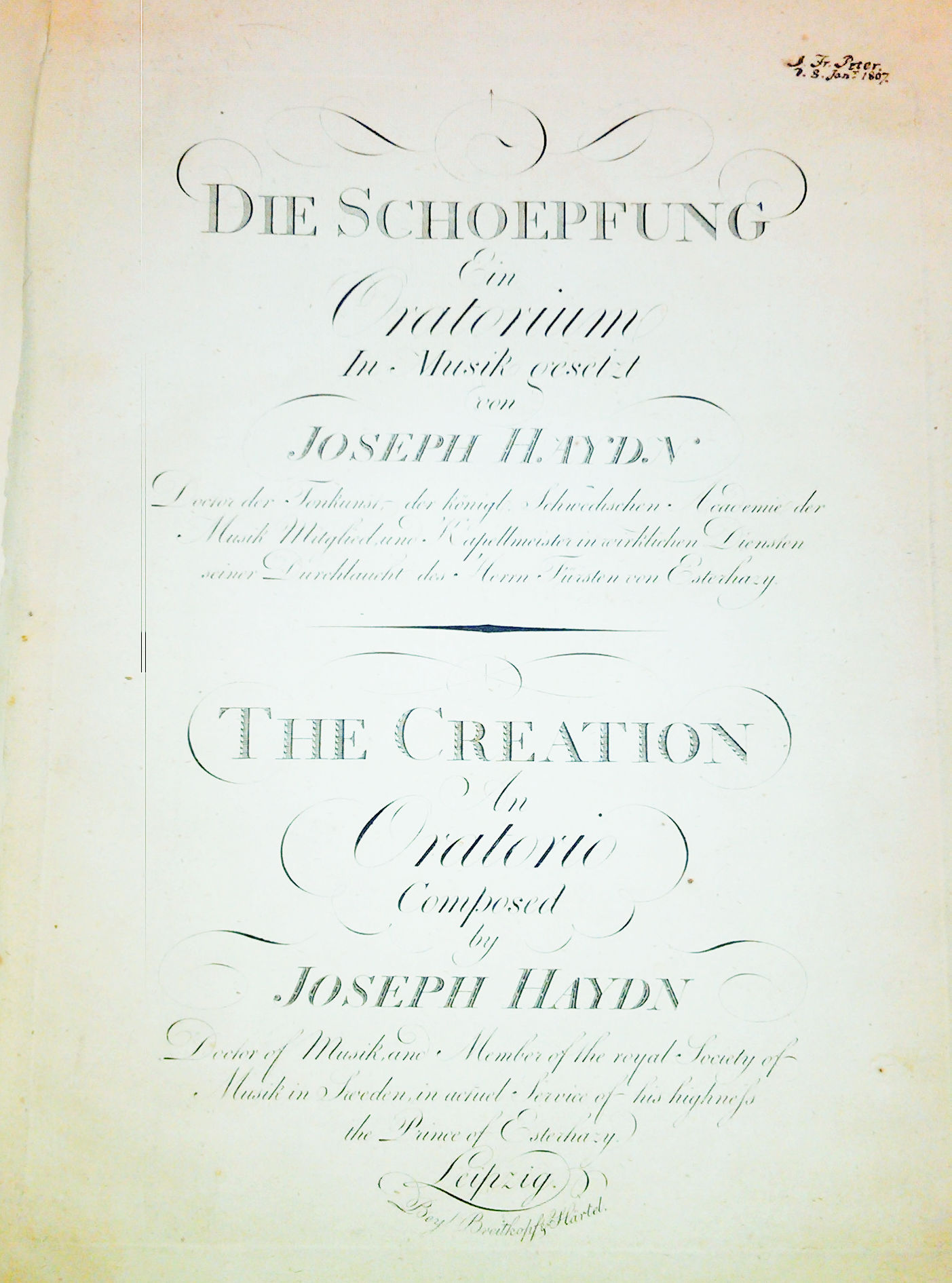
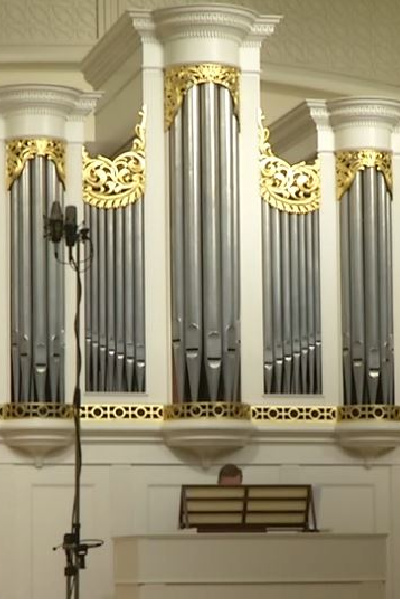
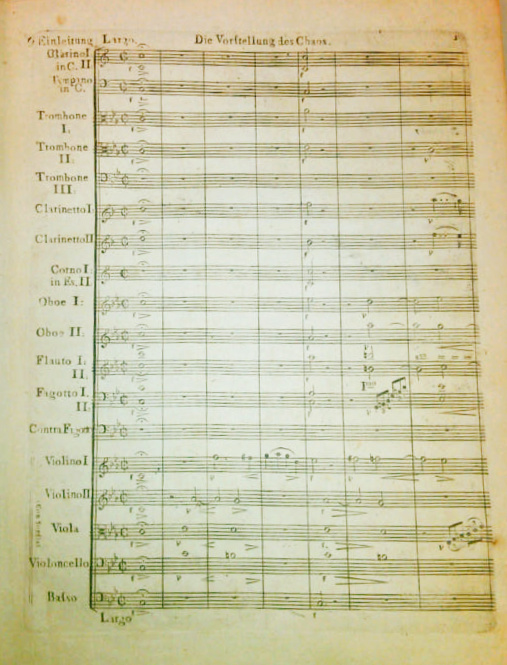
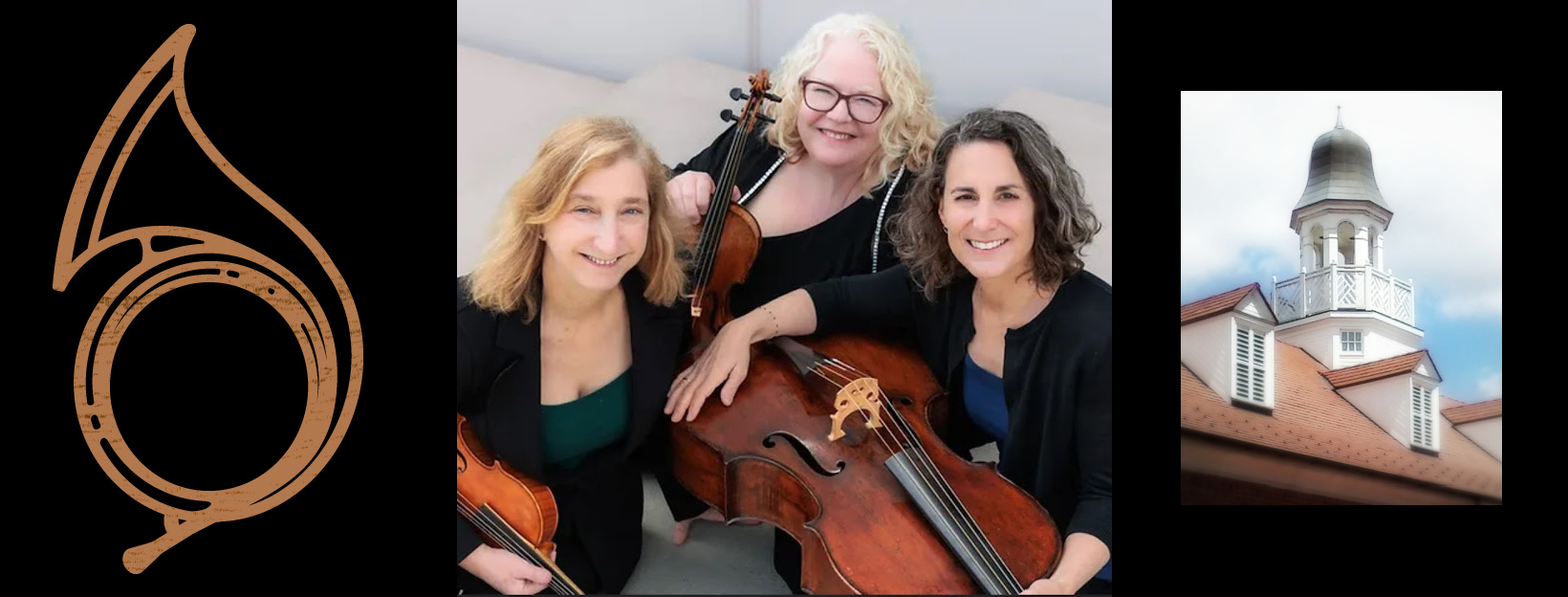
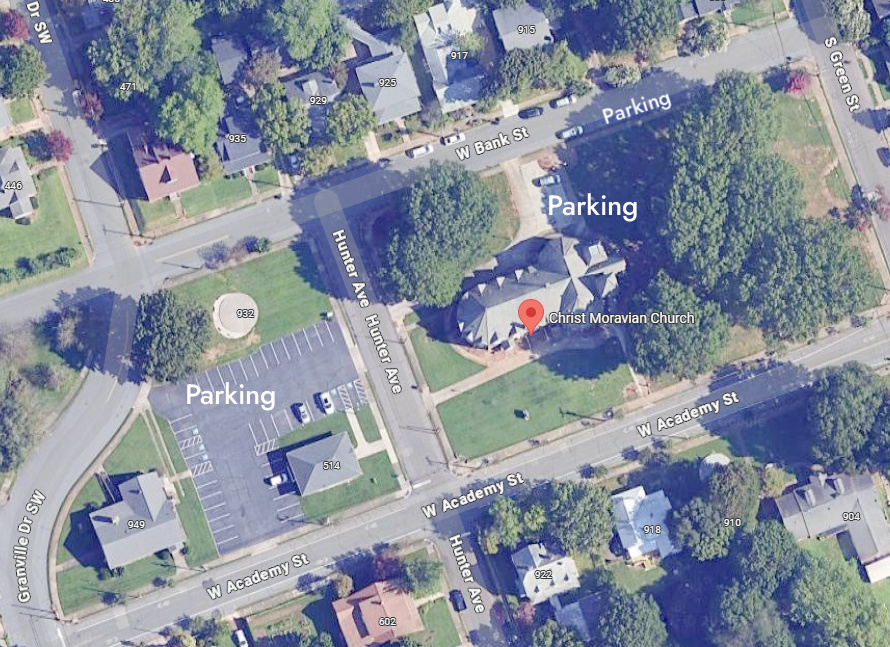
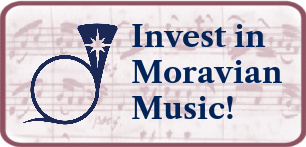

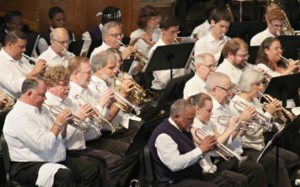
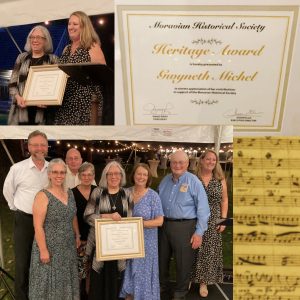
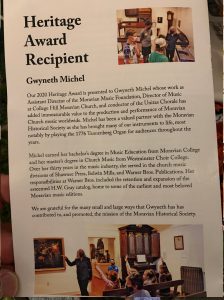
Leave a Reply